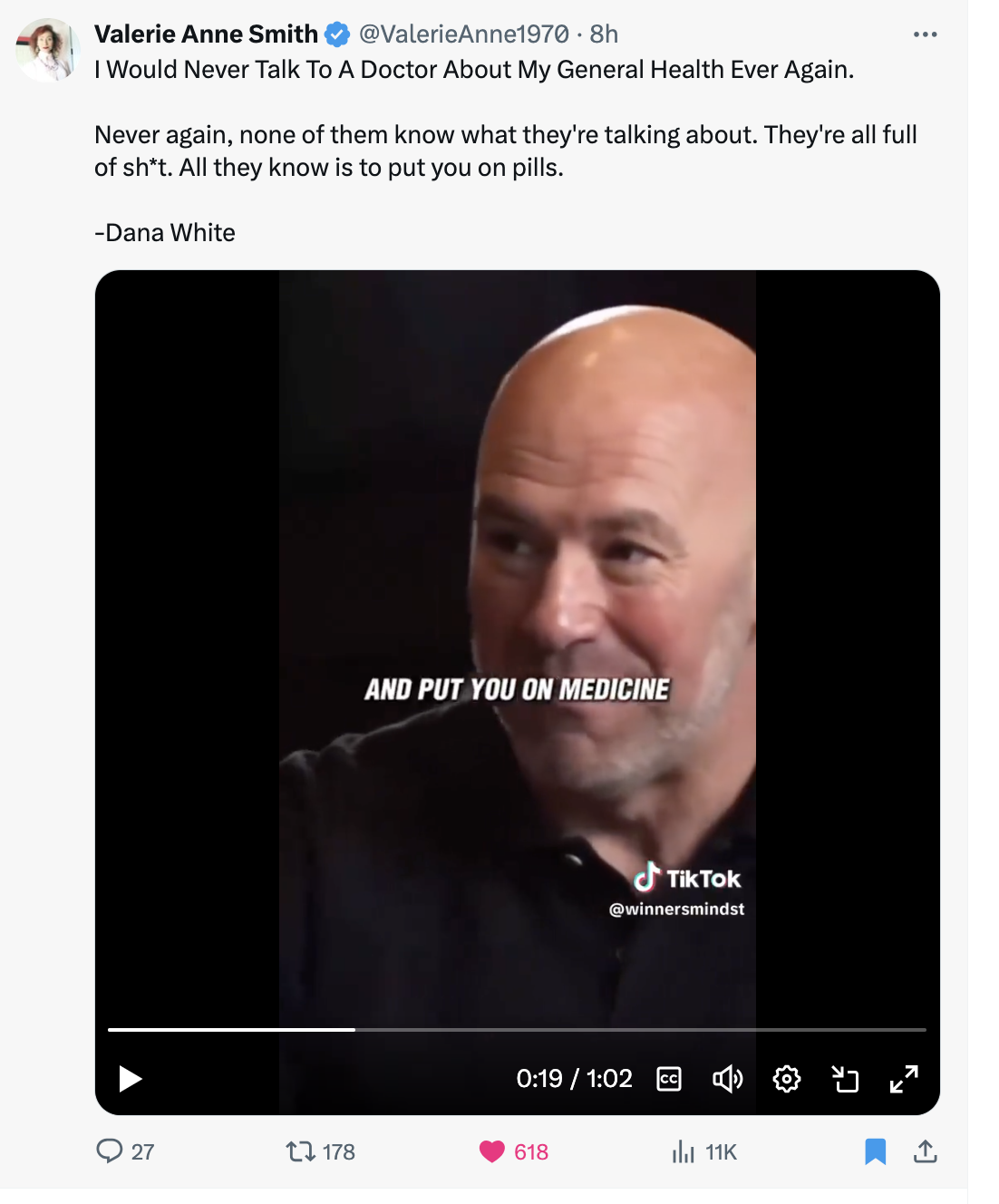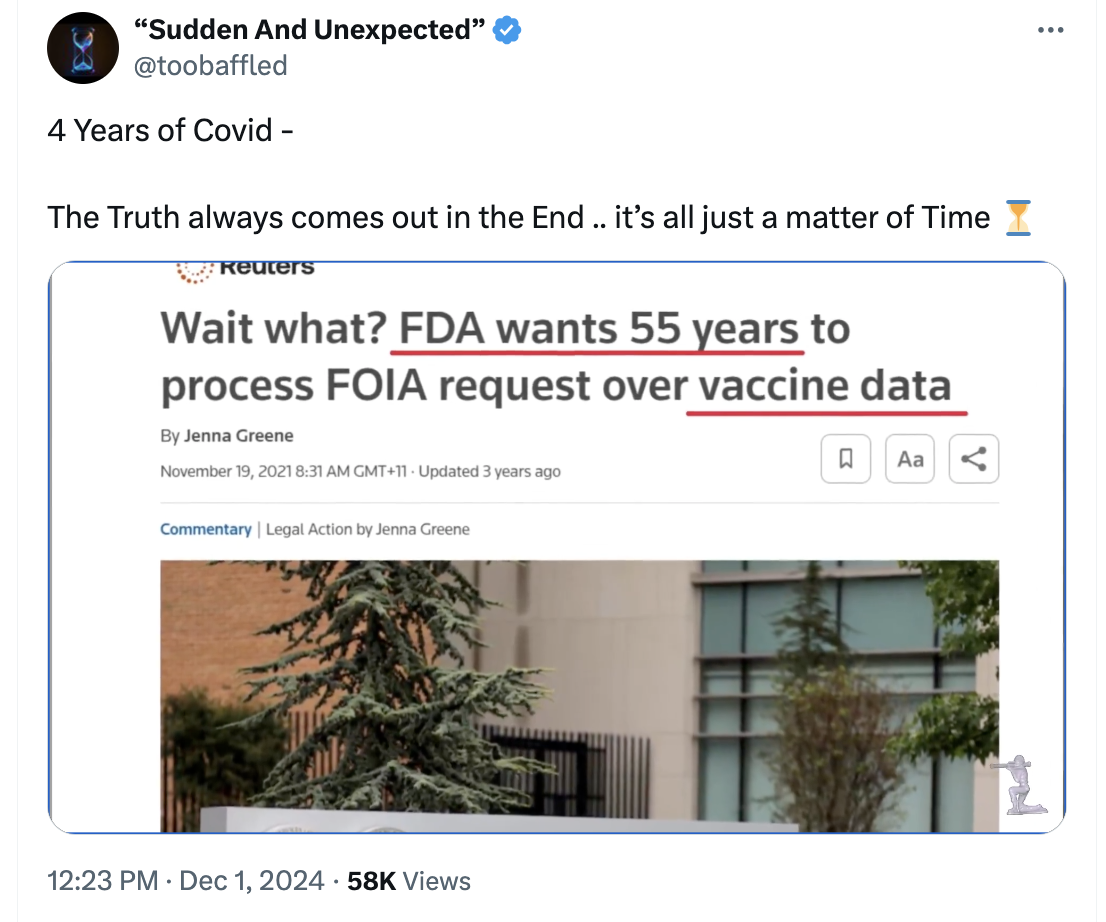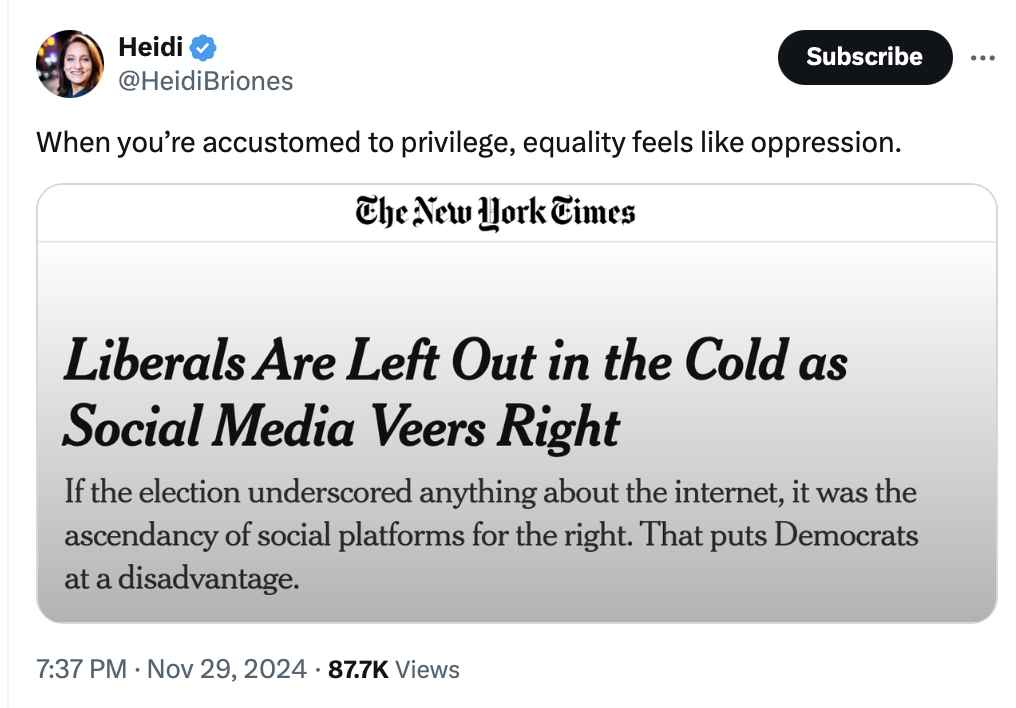America’s Meta-Problem
Michael Shellenberger accurately sums up America's biggest challenge, the problem that underlies and exacerbates most of our other problems:
There is an epidemic of white police officers killing unarmed black men, we must block the puberty of children born in the wrong bodies to prevent them from killing themselves, the Russians control Trump through a sex blackmail operation, the Covid vaccine prevents infection, millions or billions will die from starvation and harsh weather from climate change, there's no way a Covid virus could have escaped from a lab, mass migration improves societies with no trade-offs, it's best for addicts if we give them hard drugs to use in special sites downtown, we need the government to fight misinformation online in order to save democracy, Biden is sharper than ever, Kamala is 100% prepared to be president, and anyone who disagrees is racist, sexist, and/or fascist.While many Americans are increasingly and at least partially aware that all of the above are lies, we are still a long way from coming to grips with their enormity, their monstrous consequences, and the totalitarian ways in which the mainstream news media, many employers, and governments demanded that we believe them. Current and former heads of state, our most-trusted journalists, and full professors at Ivy League universities created and propagated those Big Lies, repeatedly, for years, even after they had been thoroughly debunked, sometimes within days or hours of them being made, by people who ruling elites then sought to bankrupt, shame, and ostracize.
There has not yet been a proper accounting of the very many abuses of power, including the Big Lies, by elected officials, the media, and other governing elites during the Woke Reign of Terror (2013 - 2024). That accounting will need not only to thoroughly debunk all of the major lies, it will also need to explore why elites created and perpetuated them, why so many people believed them, why they lasted for so long, and what can be learned from them, both separately and how they worked together as a whole, constituting the worldview of the people who run Western societies and nations. Historians, sociologists, psychologists and many others will, for centuries, study the Work Reign of Terror as a uniquely irrational and self-destructive period in America's history. Hopefully something good, including wisdom, courage, and improved self-governance, will come out of those studies and reflections.





